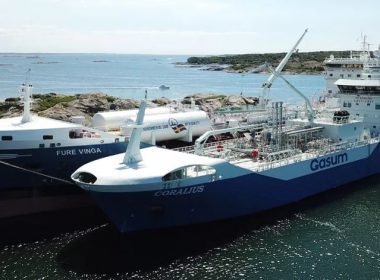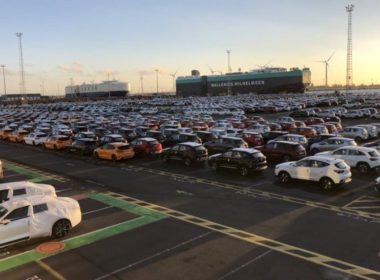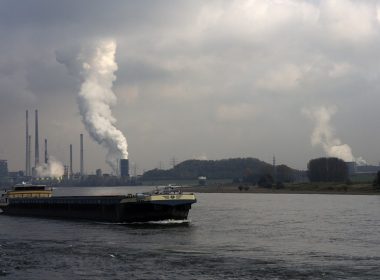COLUMN | Does the protection of trade matter? [Grey Power]

If there ever was a reason for people to stop whining about their taxes being spent on expensive warships, it is now, with the Red Sea piracy crisis (There is no other way to describe it.) stretching supply chains.
But already there have been complaints about US warships being employed to defend the merchant ships of foreign flags against the missiles and speedboats of the Iranian-backed Houthi rebels on the Yemeni coast. Shouldn’t these rich giant containership owners be paying for their own protection? This was one verse of this litany that registered rather harshly, as the efforts by the US to form a coalition of the willing went on.
The excellent column by our naval correspondent Trevor Hollingsbee alluded to the fact that the flags flown by the threatened merchant ships bear little relation to their ownership and unsurprisingly complicate matters. It is a recurring problem, since flags became such a matter of convenience, the colours mostly flown being those of countries that are dab hands at the business of registration, but of questionable value when there is any sort of emergency requiring more than the services of corporation lawyers.
“You don’t particularly have to be an ally of Israel to look at the harm that is being done to world trade by these pirates.”
You do not have to have too long a memory to recall the frantic re-registering of ships going into the Arabian Gulf in the 1980s, when the heroic aviators of Iran and Iraq were busily targeting tankers and everyone wanted to shelter under the US umbrella in their protected convoys. But now we have drones, and easy targeting by AIS and Iranian supplied missiles and 12 per cent of the world’s trade suddenly at risk.
The fact is that most of us have skin in this game, if we think of the cargoes being targeted and ignore the flags flown by the carriers, which appear to be completely irrelevant to those controlling the armaments. And what about the lives of the seafarers who are now worrying about whether their ship is in the sights of some blighter with his games console and some airborne high explosive? There were about eight different nationalities in the crew of the car carrier Galaxy Leader now lying in Hodeidah roads and who have been hostages for nearly a month.
If there was any decency and sense of responsibility in the world, there ought to be a recognition of what the international shipping industry and those who work afloat in it currently need and no reluctance to engage with the coalition being formed by the US. You don’t particularly have to be an ally of Israel to look at the harm that is being done to world trade by these pirates and to do what you can to get the ships trading freely and safely again.
“If ever there was a need for trade protection, it is surely now.”
You would like to think that countries at each end of the supply chain that normally passes through the Gulf of Aden, the Red Sea, and the Suez Canal might feel able to share some of the load of protection. Surely those countries whose seafarers are most at risk – India, from the Philippines, China, and other labour-supplying nations – have a duty of protection, regardless of the pointless bit of bunting flown by the merchant ships in which they serve. Many of these nations have perfectly capable navies that surely ought to be doing something genuinely worthwhile rather than sitting in port or exercising. The Somali pirate problem, which could well be starting again, surely offers a reasonable model.
Senior naval officers, when taxed about the size of naval estimates by ignorant politicians who know little about history, usually cite the “protection of trade” or the need to enable ships to “go about their lawful business” when the questioning gets rough. Well, if ever there was a need for trade protection or such “enabling,” it is surely now, whatever one might think of the terrible Hamas-Israel confrontation.
If a group of armed coastal bandits are not to inspire other like-minded pirates and malicious sponsors, there needs to be an urgent and swift response.







